Author: Jim F.
-
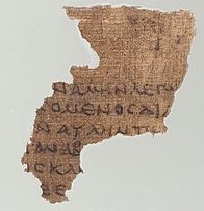
New Testament Sunday School Lesson 46: Revelation 5-6, 19-22
The word “end” has at least two meanings in English: the point that marks the boundary or limit, such as the last point in a series, and the purpose or goal. Of course, these two meanings are not necessarily mutually exclusive. When speaking of the end, Latter-day Saints often use a phrase that is worded…
-
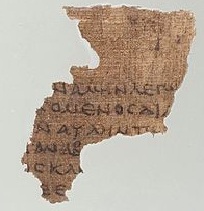
New Testament Sunday School Lesson 45: Revelation
As with other Sunday School lesson notes, these are intended primarily to help people study for the lesson, not as lesson preparation materials. Of course, anything one uses for study can also be used to help one prepare a lesson. But study rather than lesson preparation is the main purpose of these notes. Background The…
-
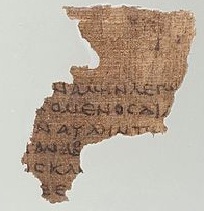
New Testament Sunday School Lesson 44: 1-3 John
1-3 John seem to be letters written to different churches in the region of Ephesus mostly in response to a group of apostates whom we call Gnostics. Most scholars believe that John wrote these letters before he wrote the Gospel of John, though that is not a unanimous opinion. There are, for example, some who…
-
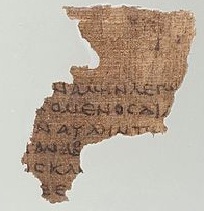
New Testament Sunday School Lesson 43: 1-2 Peter, Jude
Before you read the letters from Peter, take a few minutes to recall who he was: What was his position in the Church? What particular experiences did he have with the Savior? What might he have learned from those experiences? How does that background inform these letters? Outlines of 1 Peter, 2 Peter, and Jude…
-
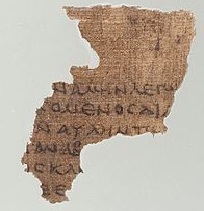
NT Sunday School Lesson 42: James
We do not know who the author of this epistle was (there are several persons named James in the New Testament), but tradition says that it was James, the brother of Christ and the presiding elder in Jerusalem after Christ’s death. (See, for example, Acts 15:13, where he presides over the Jerusalem conference called to…
-
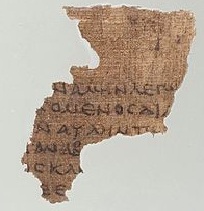
NT Sunday School Lesson 41: 1 and 2 Timothy; Titus
1 Timothy 3 3:15-16: How is the Church “the pillar and ground of truth”? What metaphor is Paul using? How does that metaphor help us understand what the Church does? What does he mean when he speaks of “the house of God”? Does he mean the church as a whole or individual congregations? What does…
-

NT Sunday School Lesson 40: Philippians, Colossians, Philemon
There is even more to cover than usual in this lesson. The result is 12 pages of study material. Because it usually helps to understand the context in which the verses one studies occur, I will supply some background information about each book, as well as an outline of the text of each. Then I…
-

New Testament Sunday School Lesson 39: Ephesians
For a variety of reasons most New Testament scholars do not believe that this book was ever an actual letter written to a specific Christian congregation in Ephesus. For one thing, the words “to the Ephesians” in verse 1 is not part of the best manuscripts. Instead of a letter, it appears to be a…
-

New Testament Sunday School Lesson 38: Acts 21-28
I will focus these study notes on Acts 21:1-Acts 23:11. As you read this story of Paul, notice that the Church of his time has spread to many communities. Paul is able to move from place to place, at least in the general area of Palestine and parts of Asia Minor (now western Turkey), and…
-

NT Sunday School Lesson 37: Hebrews
The book of Hebrews is what scholars call a “homiletic midrash” on Psalms 110, meaning that it a sermon responding to Psalm 110. It might be useful to read that psalm before reading Hebrews and to keep it in mind as you read Hebrews. Most contemporary scholars, including some LDS scholars, do not believe that…
-

NT Sunday School Lesson 36: Romans
I have to confess that Romans is perhaps my favorite book of scripture. Given the way that most Latter-day Saints think of Romans, that marks me as at least strange, if not perverse. It also means that I will have to restrain myself to keep the notes for this lesson to a reasonable length. To…
-

NT Sunday School Lesson 35: 2 Corinthians
Background 1 and 2 Corinthians are two of perhaps four letters that Paul wrote to the saints in Corinth. The first letter (referred to in 1 Corinthians 5:9-13) has not been preserved. 1 Corinthians is the second letter, written partially in response to reports of problems in Corinth and partially in response to questions that…
-

NT Sunday School Lesson 34: 1 Corinthians 11-16
Every so often I insert this reminder: These are study notes, not notes for a lesson. Of course, studying the chapter can help one prepare for the lesson, and the same questions used for study can be used to teach a lesson. But the primary purpose of these notes is to help people think about…
-

NT Sunday School Lesson 33: 1 Corinthians 1-6
Some background on 1 Corinthians (in addition to that given in the Bible Dictionary): The church at Corinth was founded by Paul in 51 A.D, and this letter was probably written in the early spring of 57. Corinth had a reputation for debauchery in the ancient world, and that in a world that was tolerant…
-

NT Sunday School Lesson 32: Acts 18:23-20:38; Galatians
The readings from Acts tell of Paul’s third missionary journey, to Galatia, Ephesus, Macedonia, and Greece. (See the maps in your LDS Bible.) Acts 20:28-32 Verse 28: To whom is Paul preaching in these verses? (See verse 17 and footnote “b” for verse 28.) The Greek word translated “overseer” is episkopos, the root word for…
-
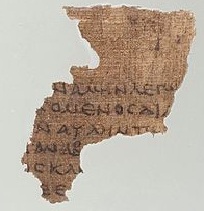
NT Sunday School Lesson 31: Acts 15:36-18:22; 1 & 2 Thessalonians
Almost all of our lessons cover an incredible amount of material. However, this lesson covers even more material than usual: 3 and one-half chapters of Acts, 5 chapters of 1 Thessalonians, and 3 chapters of 2 Thessalonians. To try to make the material more manageable, I will focus on 1 Thessalonians 4-5. As you will…
-

NT Sunday School Lesson 30: Acts 10-14; 15:1-35
This part of Acts tells the story of the beginning of the mission beyond the area immediately surrounding Jerusalem to “the uttermost part of the world” (Acts 1:8). As you read these stories, notice how important the Twelve are in that work. Why do you think that they didn’t delegate more of the missionary work?…
-

NT Sunday School Lesson 29: Acts 6-9
Acts 6 Verses 1-7: Who were the “Grecians”? We would probably call them “Hellenists.” Remember that as yet the Gospel has not been preached to the Gentiles, so who might these people have been? Who were “the Hebrews”? Is there anything comparable to this division in today’s Church? Why were the Grecians complaining? The word…
-

NT Testament Sunday School Lesson 28: Acts 1-5
There are several stories in these chapters: In chapter 1, we learn that Jesus ministered to the apostles for forty days after his resurrection and that Matthias was chosen to fill the vacancy left by Judas. Chapter 2 tells us of the visit of the Holy Ghost on the day of Pentecost, the gift of…
-

NT Sunday School Lesson 27 (JF): Matthew 28; Luke 24; John 20-21
Matthew 28 Verse 1: Who was the other Mary? (See Matthew 27:57.) Verse 2: Rather than “And behold,” “Look!” is probably a better translation. The angel only rolls back the stone when the two Marys come to see the tomb. Does Jesus leave the tomb at that time, or has he already left? Verses 2-5:…
-

NT Sunday School Lesson 26: Matthew 26:47-27:66; Mark 14:43-15:39; Luke 22:47-23:56; John 18-19
These study materials will focus on Matthew. Matthew 26 Verse 47: This crowd came from the temple priests, so it may have been the temple police rather than a mere mob. Verses 48-49: Just as it is today for many, a kiss on the cheek seems to have been a standard greeting, but it seems…
-

NT Sunday School Lesson 25: Matthew 26:36-46; Mark 14:32-42; Luke 22:39-46
As important as the events in the Garden of Gethsemane were, they receive very little attention in scripture. Matthew has 11 verses on it, Mark also has 11, Luke has 7, John tells us nothing about it at all, though he was as close as anyone to what happened. The Doctrine and Covenants has 4…
-

NT Sunday School Lesson 24: John 16-17
Remember: though these may be useful in helping a person to prepare a Sunday School lesson, they are intended primarily to help one study and prepare for taking part in Sunday School. That’s why you’ll find questions with no answers; they are study questions. John 16 Verses 1-3: In verse 1 Jesus tells the disciples…
-

NT Sunday School Lesson 23: Luke 22:1-38; John 13-15
Getting caught up (as you can see). With this lesson we begin to read about the part of Christ’s life that is traditionally called “the Passion,” the time between the Last Supper and his death on the cross. The word “passion” and the word “passive” are related terms. Why is this part of Jesus’ life…
-

NT Sunday School Lesson 22: Matthew 25
Verses 1-13: The Parable of the Ten Virgins How does the parable relate to that given in Matthew 24:45-51? We know little about marriage ceremonies in Palestine during Jesus’ day. Indeed, we can assume that the customs varied from one place to another in Palestine, making it even more difficult to recover them. Most of…
-

NT Sunday School Lesson 21: Matthew 24 (JST)
It is sometimes helpful to have the Joseph Smith revision (JST) and the King James translation side-by-side, so I have put both versions of chapter 24 together in a PDF file for those who would like to use it. Traditional Christianity finds this chapter ambiguous: in some ways it seems to refer to the destruction…
-

NT Sunday School Lesson 20: Matthew 21-23; John 12:1-8
Matthew 21 Verses 1-7: The end of verse 3 could also be translated “and straightway he will return them.” Verse 5 puts two scriptures together, Isaiah 62:11 and Zechariah 9:9 (as they appear in the Greek rather than the Hebrew version of the Old Testament). What does “daughter of Sion” mean? Why is it important…
-

NT Sunday School Lesson 19 (JF): Luke 18:1-8, 35-43; 19:1-10; John 11
Luke 18 Verses 1-8: The chapter division here (an artificial division not in the original text) makes us not see the connection between the end of Luke 17 and the beginning of 18. Might Luke have any particular prayers in mind in verse 1? How about the desire mentioned in Luke 17:22? In verse 1,…
-

NT Lesson 18 (JF): Luke 15, 17
Luke 15 As I learned from Bruce Jorgensen, it is important to read the parables of Luke 15 together. Consider the setting that Luke gives us in verses 1-2 and then imagine Jesus telling each of these parables in response to what happens in those verses: he hears the Pharisees and the scribes complaining because…
-

NT Lesson 17: Mark 10:17-30; 12:41-44; and Luke 12:13-21; 14; 16
Given the quantity of material in these chapters, rather than try to cover everything, I will focus my questions on the verses from Mark and selections from the verses in Luke. As you read this material, be sure to ask how it applies to us who live in the latter-days. What do these verses teach…
